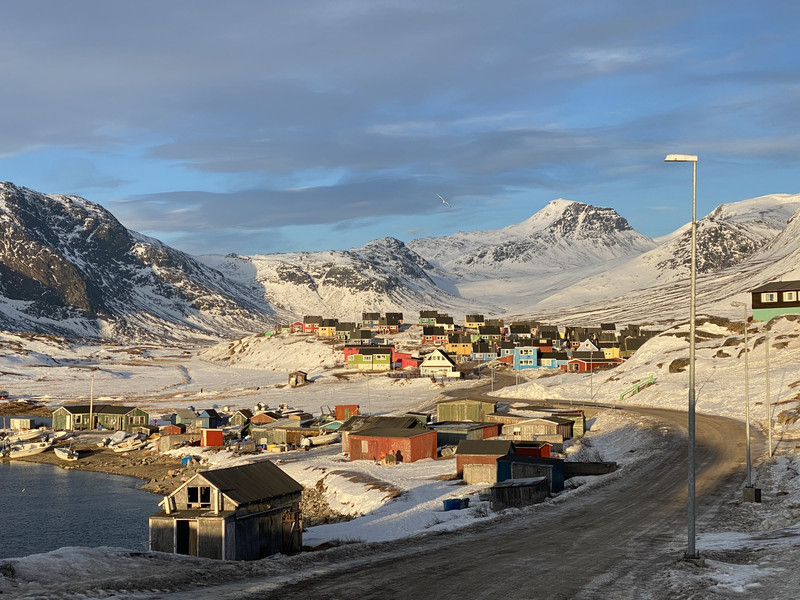Scientists raise alarm on Greenland's ice-sheet loss
The Arctic is warming up to three times as fast as the rest of the planet, putting increasing pressure on Greenland's ice sheet and livelihood in this region, a group of scientists warned on Thursday (14 October).
Greenland has been losing more ice than it gains each year since the late 1990s. However, the ice melting has not been equally distributed across the island, with the west coast the worst hit
The observed surface melting of the Greenland ice sheet and glacier mass loss resulting from the acceleration of climate change's effects has become one of the largest contributors of rising sea levels since 2000, researchers have said.
"The ice sheet surrounding Greenland is changing. It is thinner, it breaks up earlier, and opens up more frequently," said Ruth Mottram, a climate scientist at the Danish Meteorological Institute, at an online event on Thursday.
"Our experiments also show that the ice sheet is extremely sensitive to the current emission pathway. The lower the emissions, the less the warming and the less ice melting we see in our simulations," she said.
Keeping global warming to 1.5 degrees can really "make a difference", she added, referring to the headline target of the 2015 Paris climate accord.
Experts believe that Greenland's ice sheet is more likely to remain stable if the Paris targets are met, although it is still uncertain how the ocean is contributing to the retreat of the glaciers in this fragile area of the planet.
Even under low-emissions scenarios, sea level could still rise up to 30 centimetres by 2100, with severe impacts for communities in coastal zones.
In an undeniable sign of climate change, and for first time in recorded history, it even rained at Greenland's highest point this summer - the National Science Foundation's Summit Station, located 3,126 metres above sea level.
Temperatures have already been rising in Greenland by two degrees a year on average. But, according to Jason Eric Box, a professor from the Geological Survey of Denmark and Greenland, the Danish territory could face five-degree rises in summer warming, even if the Paris agreement was a success.
"The more the emissions are limited, the slower the ice will be lost so we can buy time," Box said.
"A lot of pressure should be felt at COP26, where hopefully international agreements and treaties have legal enforcements for policies to have a real effect in the future," he added, referring to an upcoming global climate summit in Scotland.
The challenge was "politically tricky", he noted, because ice-sheet melting was accelerating now, while the benefits of upcoming policies would only be felt decades from today.
Based on current trends, the Arctic will be ice-free in summer by 2050.
The European Commission this week called called for a moratorium on oil and gas exploration in the Arctic region, as part of its updated Arctic strategy.
Earlier this year, Greenland's government, the Naalakkersuisut, suspended all new oil and gas exploration.
"This step has been taken for the sake of our nature, for the sake of our fisheries, for the sake of our tourism industry, and to focus our business on sustainable potentials," it said in a statement.
A recent study estimated that there were €2.4bn barrels of oil available off the west coast of Greenland.
The new left-wing government of Norway, meanwhile, announced this week that it would keep searching for oil and gas, issuing new drilling permits in the next four years.

No comments:
Post a Comment